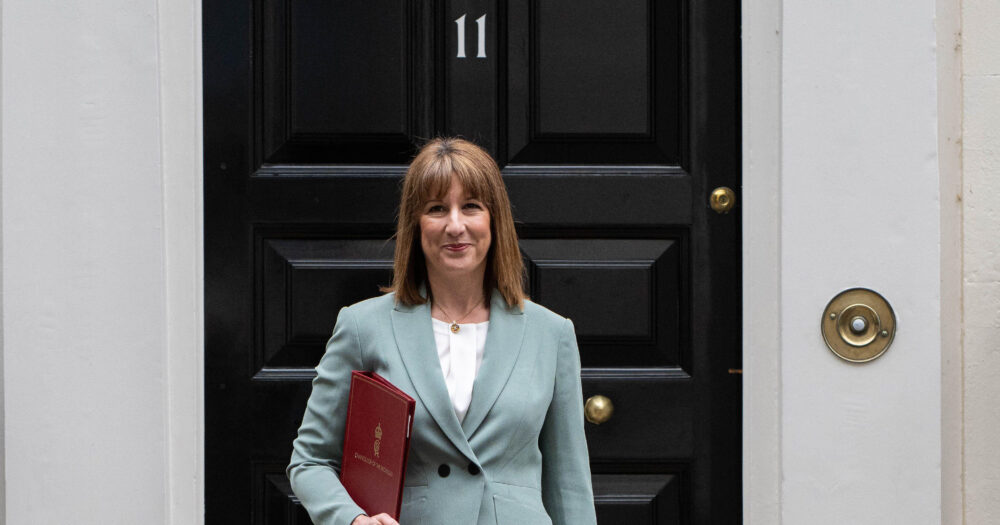A chunk of the extra cash promised to boost school budgets will actually go towards financing SEND reforms, Schools Week has learned, as leaders warn the settlement falls “well short of what’s needed”.
The chancellor announced on Wednesday that the core schools budget will increase by £4.7 billion by 2028.
However, this includes £615 million earmarked to go towards the teacher pay award next year, plus the £410 million cost of extending free school meals.
And it has now emerged that £760 million of this rise is actually due to be spent on “reform of the SEND system” in the next two years.
Government had said the extra school budget funding worked out as a three per cent rise in real-terms funding per-pupil by 2028.
But the Institute for Fiscal Studies warned ministers “may have to freeze spending per pupil in order to meet rising demand for special education needs provision”.
Budgets hinge on SEND reform
“The next few years are going to feel very tight for schools,” the IFS’s Luke Sibieta told Schools Week.
“While schools did receive a relatively generous settlement compared with other areas of public spending, familiar pressures from rising costs of SEND, staff costs and falling pupil rolls will weigh heavily on budgets over the next few years.”

But he said “just how tight” will “largely depend on reform of the SEND system”. Government has promised to set out plans in a white paper in Autumn.
Sibieta pointed out the government forecasts spend on SEND will rise by over £2 billion in real terms by 2028.
“If this occurs, then the best schools could hope for is a real-terms freeze in mainstream school funding per pupil between 2025 and 2028,” he added.
Data published this week shows the number of education, health and care plans has soared again, rising 11 per cent in the year to January 2025. It means more than one in 20 pupils now have an EHCP.
The spending review includes £547 million in 2026-27, and £213 million in 2027-28, for “reform of the SEND system”. This is part of the government’s public services “transformation fund”.
But Department for Education told Schools Week this investment is part of the core schools budget cash increases.
However, they added the cash is just “one part of the investment government will make in SEND reform, not the entirety”.
Leaders report bleak outlook
While welcoming the increase in funding, leaders said the current outlook still remains bleak.
Julia Harnden, deputy director of policy at the ASCL leaders’ union, warned schools “are already having to make significant cuts”.
“The spending review announcements will not change that situation in the short-term and won’t be enough to reverse this situation in the longer term either.”
Dr Nicola Crossley, CEO of Liberty Academy Trust, said the settlement “falls well short of what’s needed for a system that is both complex and under significant strain”.
Sibieta estimated the cash would allow schools to afford future teacher pay rises of “around 2 per cent”.
But he said “if recommendations are higher than that, schools would either need to reduce non-staff spending or reduce staffing levels in the absence of extra funding”.
David Clayton, CEO of the Endeavour Learning Trust, added schools were still “operating in an incredibly difficult funding environment and if the government is not careful, this small increase will be swallowed up without alleviating the pressures that schools are facing.
“As such, it’s vital these funds are distributed directly to schools and towards the children who need it the most, if we’re going to see the changes we all want to see”.
Lee Mason-Ellis, CEO of The Pioneer Academy, agreed the “lack of funding at school level is a great concern and the ongoing viability of many schools, especially smaller primary schools is a grave concern”.
Education secretary Bridget Phillipson said the funding settlement was a “record per pupil investment. Our Plan for Change – putting children, young people & families at the heart of Britain’s renewal.”
We need SEND plans NOW
Councils and leaders have asked for urgent clarity on reform plans. Schools Week revealed last month that one plan under consideration is to restrict EHCPs to children in special schools.
A petition calling on government to retain families’ legal rights to assessment and support now has over 100,000 signatures and will be debated in Parliament.
Speaking at a Fabian Society conference this week, education committee chair Helen Hayes said rumours about government plans “have got to stop”.
“It is such a cause of anxiety … My big ask of the government is that we need to see a proper process of engagement with parents. We need to see a proper timescale and a process for developing the reform.”
Councils’ collective high needs deficits are due to hit £5 billion next year, when a statutory override currently keeping them off their balance sheets is due to expire.
Louise Gittins, chair of the Local Government Association, said government must provide “urgent clarity on how it plans to address high needs deficits”.
















Your thoughts